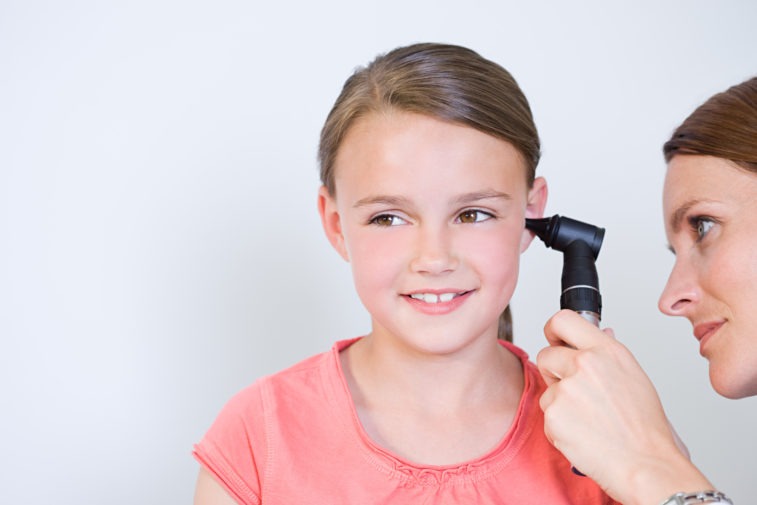Sanford Children’s Hearing Support Clinic in Sioux Falls evaluates newborns who have not passed their initial hearing screenings or children with hearing loss who have never had a genetic evaluation. The Clinic is held monthly and includes a multi-disciplinary team of specialists to address the cause of each child’s hearing loss and provide parents and primary care providers with recommendations for treatment and support services.
The American Academy of Pediatrics recommends that every newborn identified with some degree of hearing loss be evaluated fully for medical and genetic causes by the age of three months. Identifying specific genetic factors can often guide proper treatment.
Specializing locations
To learn more about the Hearing Support Clinic in Sioux Falls, please contact the Sanford Children’s Specialty Clinic at 605-312-1000.
Sanford Ear, Nose & Throat specializes in diagnosing and treating ear, nose and throat conditions in infants to seniors.
Sanford Audiology provides the latest in hearing screening, diagnosis and treatment for newborns to senior citizens.
Earlier is better to catch hearing loss
When should your child’s hearing be tested? Sooner than you think.
All states have laws or voluntary compliance programs requiring hearing tests in newborns. These are often done before babies leave the hospital. Every year, about 2 or 3 out of 100 babies are born with hearing problems in the U.S.
For years, routine hearing tests took place only when children entered school. But hearing loss can cause serious problems much earlier. And hearing problems affect language and speech development.
During the first 6 months, babies begin to recognize the spoken sounds that are critical for developing language. Poor hearing can slow down that progress for both speaking and reading.
Which child is at risk?
Consider scheduling a hearing screening for your child, especially if they have any of these risk factors:
- Born early (premature birth)
- Spent more than 5 days in neonatal intensive care
- History of severe yellowing of eyes and skin (jaundice) needing a blood transfusion
- Mother or newborn infections
- Meningitis or history of brain injury that needed a hospital stay
- Family history of childhood hearing loss
- Family history of certain hereditary or congenital syndromes such as neurofibromatosis, Down syndrome, osteopetrosis, and Usher syndrome
Even if your baby has no risk factors, you should be alert to hearing problems. You may notice the following signs of hearing loss in your baby:
- Does not notice loud noises
- After 6 months, does not turn toward sounds
- By 12 months, does not say single words
- Does not turn head when called by name
In your young child, you may notice delayed speech development or unclear speech.
Repeated ear infections, which are common in young children, can also delay language development. A newborn can pass a hearing test and still have hearing problems later in childhood. So even if your baby had normal hearing exams, be alert for the above symptoms. If you notice them, contact your child’s health care provider right away.
Hearing screenings in babies
Your baby is likely to have one of these painless, quick, and sensitive tests:
- Auditory brainstem responses. Sound is introduced to the baby’s ears through tiny earphones while the baby is sleeping. Using sensors attached to the baby’s head, the test records electrical activity made by the auditory nerve and brainstem when it’s stimulated by this sound.
- Otoacoustic emissions (OAE). The normal ear makes faint acoustic signals. These are sometimes called inner-ear echoes. People can’t hear their own sounds from their inner ear. But tiny, sensitive microphones placed in the ear canal during the screening can measure the sounds. Babies who can’t hear don’t make any emissions.
Hearing tests in children
Your child’s health care provider may check your child’s hearing with a simple device called a tuning fork. Or your child may have tests from a hearing specialist (audiologist). Tests include the 2 discussed above and:
- Pure tone audiometry. This test checks hearing at different decibels or sound levels.
- Tympanometry. This test is often used to check hearing in children with ear infections.
Other hearing evaluation tests may include:
- Speech audiometry. This test checks the spoken word.
- Behavioral testing. This is done for children who can’t be tested with other methods.
Learn more
…
Posted In Back to School, Children's, Ear, Nose & Throat, Health Information
